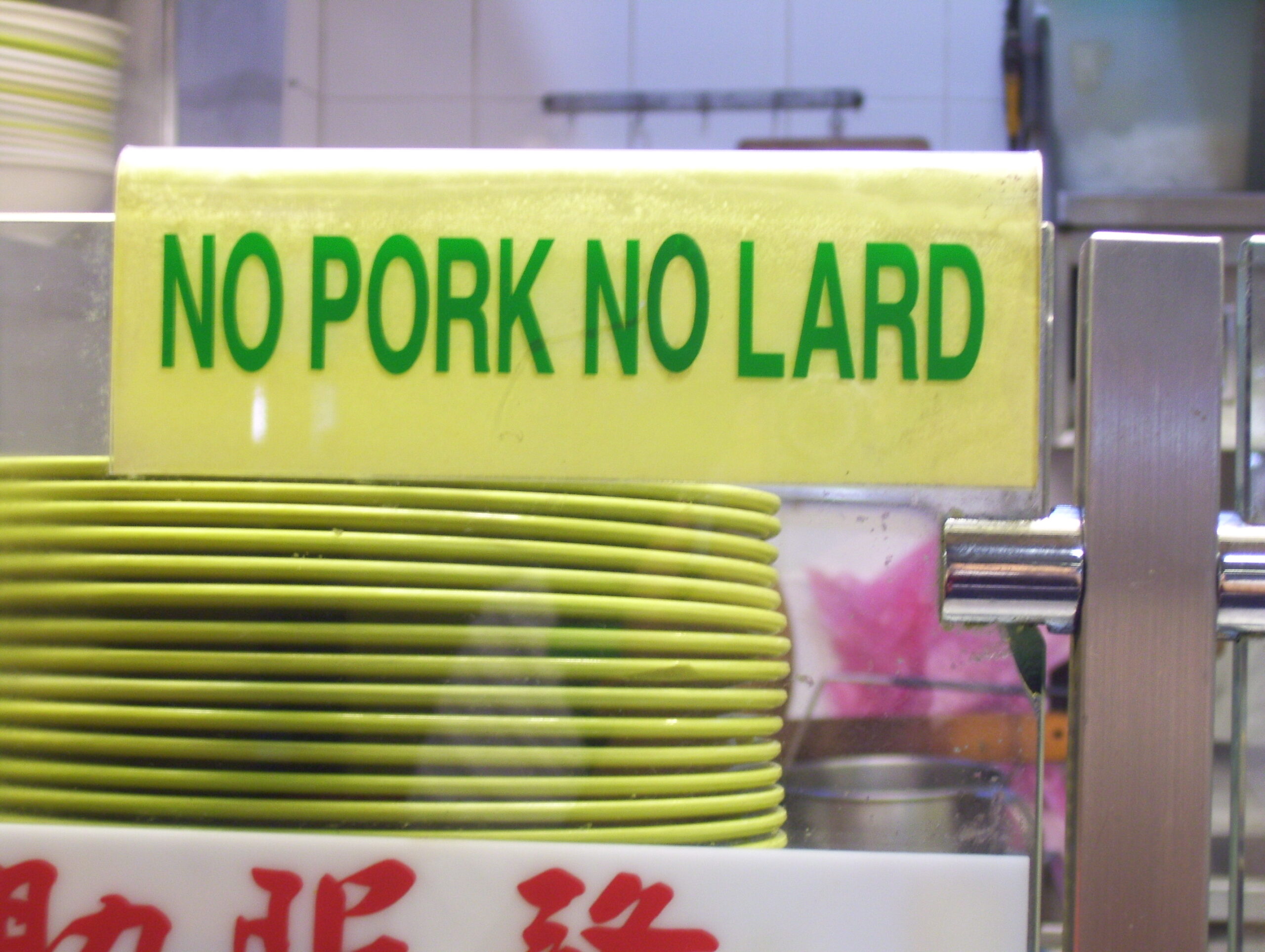“Halal”, “Non-Halal”, “Pork-Free”, “No Pork” – they seem simple enough to understand.
But when displayed as signages at restaurants/eateries, it can cause a “confusion” among Muslim consumers, according to some authorities.
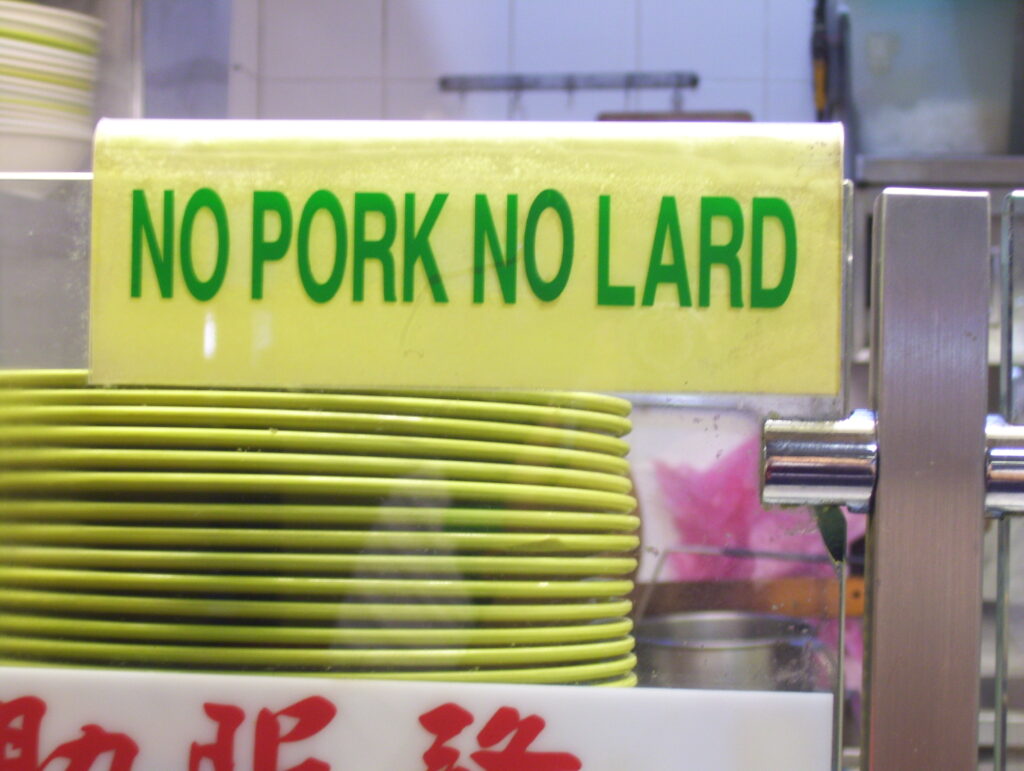
Last weekend, Malay daily Berita Harian quoted Domestic Trade, Cooperatives and Consumerism Ministry enforcement director Mohd Roslan Mahayudin as saying that action can be taken against restaurants using the “No Pork” sign to deceive Muslims into dining in their premises.
He told Berita Harian that the sign does not mean a restaurant is classified halal and thus, action can be taken under Sections 28 and 29 of the Trade Descriptions Act 2011 for attempting to confuse Muslims through Quranic verses and objects.
Section 28 in the Act deals with terms and expressions used in relation to goods or services, while Section 29 touches on informative marking and certification orders. Under Section 28, a company can be fined not more than RM5 million for first offence, while an offender that is not a corporate body can be fined not more than RM1 million or jailed not more than 3 years. Under Section 29, a company can be fined not more than RM200,000 for first offence, while an offender that is not a corporate body can be fined not more than RM100,000 or jailed not more than 3 years.
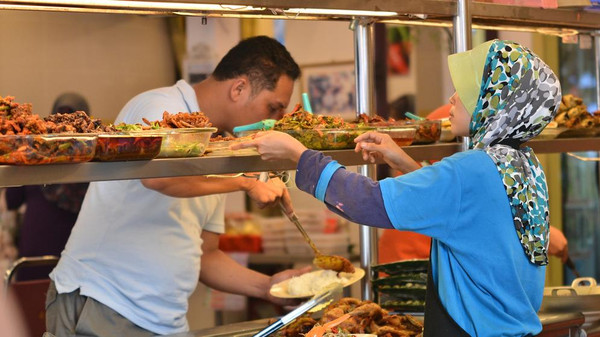
Berita Harian also quoted Malaysian Islamic Consumer Association (PPIM) as urging Federation of Malaysian Consumer Association to act on restaurants with “No Pork” signs, saying that it raises doubts on whether food and beverages in these premises meet the criteria of JAKIM standards.
JAKIM chimed in and warned consumers against eateries that use the “Pork-Free” or “No Pork” signs despite not having halal certifications. The Star Online quoted its director-general Othman Mustapha as saying that the use of such words could be a source of “confusion” among Muslims.
Deputy Minister in the Prime Minister’s Department Asyraf Wajdi Dusuki also called for action to be taken against food outlets that mislead Muslims into thinking the food served was halal due to the “Pork-Free” signage. Asyaf said only food at outlets that carried the halal certificates from JAKIM can be consumed by Muslims.
This has garnered a mixed response from the general public as well as some authorities in Malaysia. FMT quoted the Consumer Voice Association of Sarawak (Covas) president Michael Tiong as saying that Covas had not as yet received any complaints from customers about the “No Pork” signage. Other netizens pointed out that there are some Christians (such as the Seventh-Day Adventist) who aren’t allowed to consume pork too.
Perplexed? Now, we know that Muslims are forbidden from consuming pork. So herein lies the question:
Is it AN ABSOLUTE MUST for Muslims to eat at certified halal outlets/restaurants BY LAW IN MALAYSIA?
Apparently not.
Malaysian lawyer-turned-politician and former Minister in the Prime Minister’s Department Datuk Zaid Ibrahim said that there is no law in Malaysia that says Muslims must eat halal food. “There is Allah’s law, of course, which makes it a sin for Muslims to eat pork and certain other types of meat, but there is no law that defines halal in a comprehensive way,” he wrote in his blog post.
If there’s no such law, then restaurants and its owners can’t be penalised under the Trade Descriptions Act 2011, as previously claimed by the Domestic Trade, Cooperatives and Consumerism Ministry enforcement director.
“However, I would like to suggest that restaurant owners stop using ‘pork-free’ altogether because it causes unnecessary problems given the attitudes of the Ministry’s enforcement division and the poor comprehension of English generally. The Government will eventually accuse you of trying to mislead Muslim customers and ask you to put up ‘halal’ signs instead, which means that you will have to go through a different process that will probably cost more money,” Datuk Zaid Ibrahim added.
What does “halal food” mean and what does it mean to be halal certified?
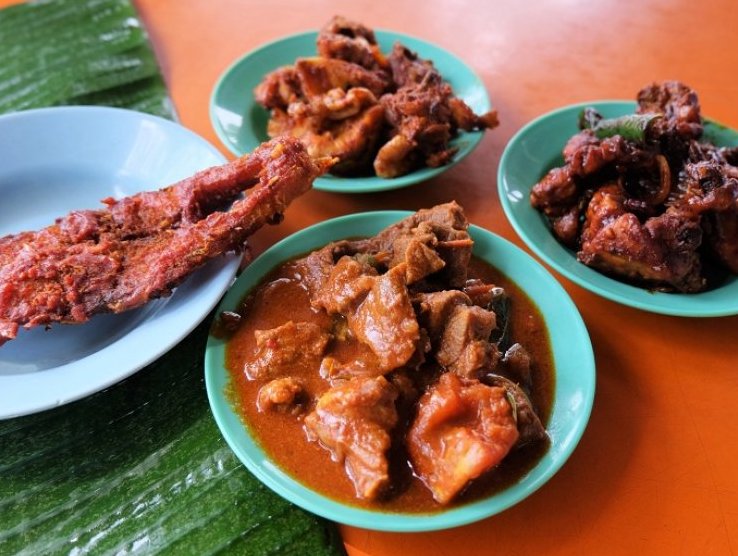
Halal is an Arabic word meaning lawful or permitted, and halal food is food that has been prepared according to Islamic law. This means that it has to be free from pork products, alcohol, and certain other ingredients that are considered impure in Islamic law. But it also boils down to how the food is processed, made, produced, manufactured and/or stored using utensils. Equipment and/or machinery used in the process must also have been cleansed according to the Islamic law.
As for the halal certification, a variety of Islamic groups are involved in halal certification, with companies who wish their products to carry a halal stamp paying fees for inspection and certification.
In Malaysia, the halal certification is obtainable via JAKIM. The accreditation process entails a site inspection by competent Malaysian officials and the appointment of an Islamic Organisation that will be entrusted to supervise and monitor the halal status of the site concerned. The Islamic Organisation will be officially accredited by JAKIM and the halal certificates for products to be exported to Malaysia will be issued by such approved organisation.
Initially, the halal status conferred to an approved establishment and individual will be for a period of one year. During this period, the accredited Islamic Organisation will constantly monitor the site. To maintain its halal status, the site will be subject to inspection by competent Malaysian officials biennially (once every 2 years).
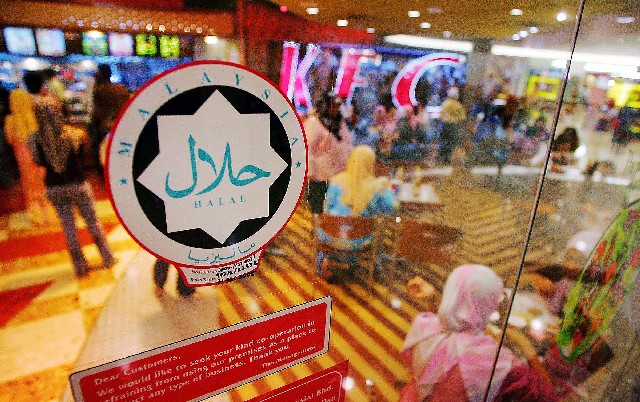
Finally, when Datuk Zaid Ibrahim said that the process will probably cost owners more money to put up halal signs, what did he mean? The rates, as listed on the Halal Malaysia official portal, states that JAKIM charges a “token amount” of RM200 for small industries RM200, RM800 for middle-sized industries, and RM1,400 for multi-national industries for the 2-year halal certification.
But that’s just the certification alone. Should there be need for research or laboratory tests regarding the status of product ingredients during the process of getting a halal certification, all costs will be borne fully by the applicant or company concerned.
To put this into perspective, this basically means that owners of food outlets/eateries/restaurants will have to keep forking out money to not only maintain their halal certification but also to re-do the inspection process if and when necessary.
So, considering the fact that that there is no law in Malaysia that says Muslims must eat halal food, is it really that big of a deal then if a restaurant displays a “No Pork” or a “Pork-Free” signage? Should restaurant owners of different faiths (say, Seventh-Day Adventist believers) be obliged to obtain the halal certification for their businesses? Above all, don’t Malaysians in general have a choice when it comes to their meals i.e if in doubt about the food’s status (halal or not halal), eat somewhere else?
To our Muslim readers, what’s your take on this? Is the halal certification important to you? Share your thoughts with us.
Sources: MMO (1), Trade Descriptions Act 2011, FMT, The Star Online, MMO (2), abc.net.au, MHF, Seventh-Day Adventist Wiki, The Zaidgeist, Halal Malaysia / Featured image from gaojibites.
Follow us on Instagram, Facebook or Telegram for more updates and breaking news.


